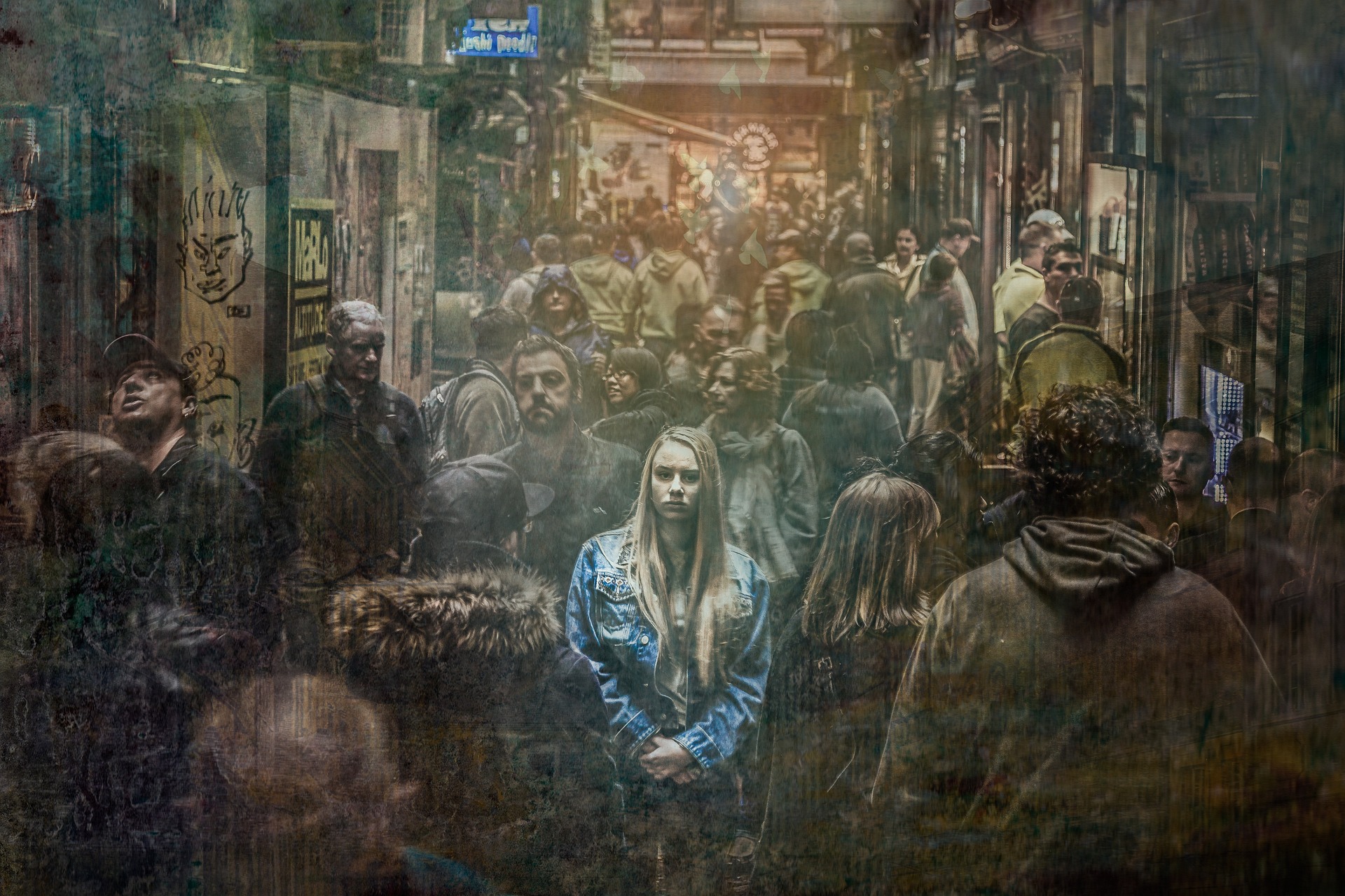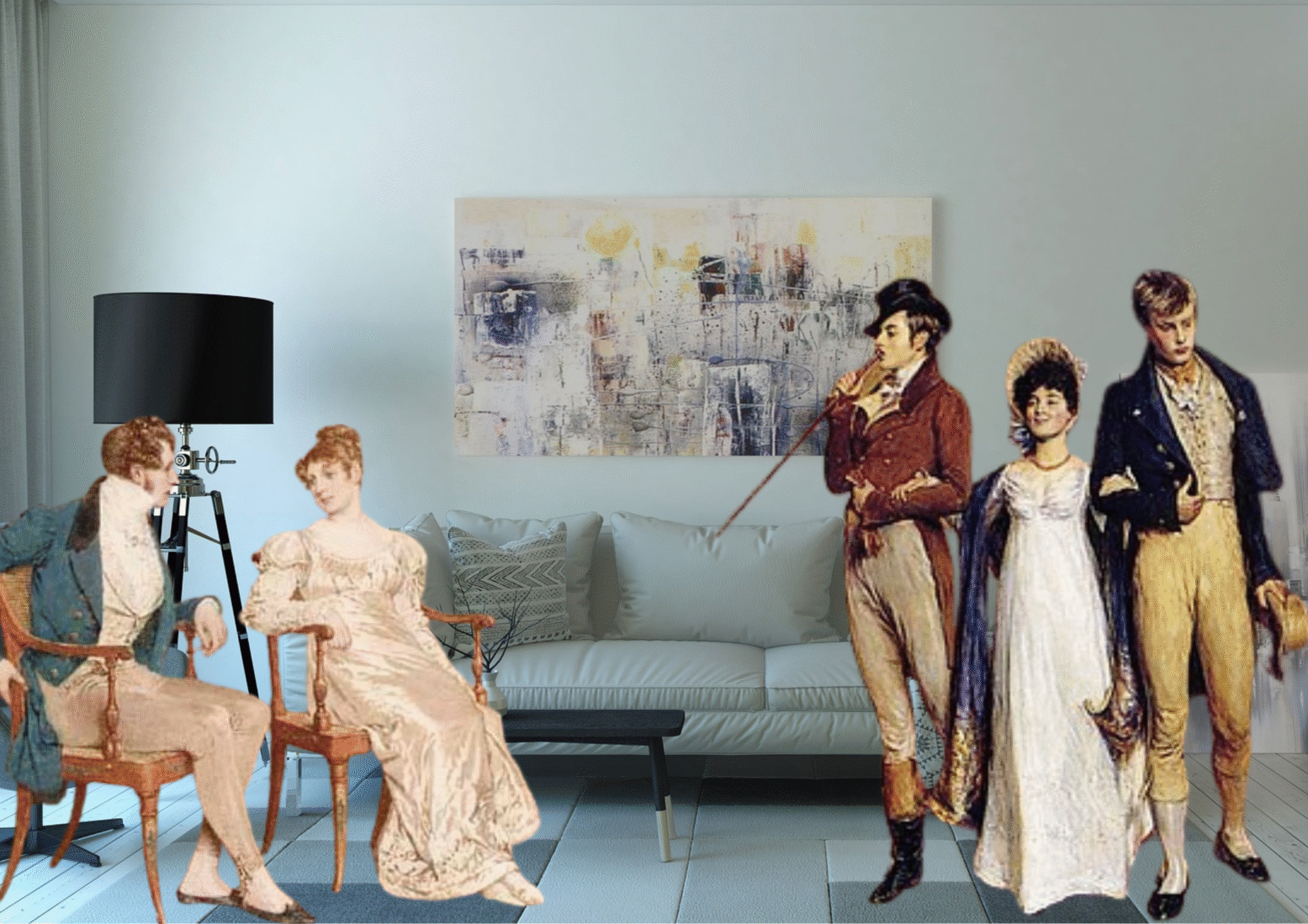There is something deeply haunting about echoes. Not merely the acoustic phenomenon that rebounds off canyon walls, but those spectral reverberations that traverse time, tracing the tremors of human anxiety, spiritual exhaustion, and cultural collapse across decades.
Such echoes are not coincidences but symptoms. They emerge from the hollows left behind when collective narratives fracture and once-coherent systems of meaning falter. Few works articulate this disintegration more powerfully than T. S. Eliot’s “The Hollow Men” and Simon & Garfunkel’s “The Sound of Silence.” Though separated by four decades and the divergent formalities of poetry and song, these two works share a chilling communion. They speak not merely of silence, but of a silence that grows louder with the collapse of speech itself.
Eliot, writing in 1925, emerges from the charred ruins of the First World War and the broader dissolution of late Victorian certainties. The War had not only maimed bodies but shredded metaphysical conviction. In “The Hollow Men,” Eliot constructs a poetics of paralysis, his men are not evil but enervated, not villains but vacuums. They are, in his own harrowing litany, “shape without form, shade without colour,” creatures exiled to a purgatorial space, “death’s dream kingdom,” where intention and execution never quite meet. “Between the idea / And the reality / Between the motion / And the act / Falls the Shadow,” he writes, and in this fatal interval lies the essence of the modern condition: an ontological stutter.
The poem’s spiritual sterility is not merely a byproduct of historical trauma, but a profound indictment of modernity’s failure to provide metaphysical anchorage. Eliot’s world is one in which the sacramental has withered into ritualistic husk, where prayer is a “broken stone” and the “eyes” of meaning are “not here.” There is no resolution, no tragic fall from grace, only a faltering whimper at the end of history. What emerges is not simply the death of God, but the evaporation of dialogue with the divine altogether. The wasteland of “The Hollow Men” is linguistic as much as spiritual a realm where words fail.
By 1964, the world had ostensibly changed. The global order was no longer haunted by the trenches of Ypres but by the nuclear stare-downs of the Cold War and the burgeoning machinery of late capitalism. Yet the same spiritual desolation that Eliot diagnosed reemerges, cloaked this time in the melancholic melodies of American folk. In Paul Simon’s “The Sound of Silence,” there is no overt reference to war or theology, but the symptoms of cultural entropy are just as acute. The opening line, “Hello darkness, my old friend,” is deceptively gentle, introspective, but it signals a descent into an interior world where communication no longer serves as a bridge but as a barrier.
Simon, like Eliot, draws attention to the erosion of authentic expression. “People talking without speaking / People hearing without listening,” he laments, exposing a society in which language has become noise, and attention has devolved into spectacle. If Eliot’s men are mute because they are spiritually anesthetized, Simon’s are deafened by the very volume of modern life. The silence of the title is not the absence of sound but the absence of significance, what Roland Barthes might call the obliteration of meaning by its own proliferation. In this world, even prophecy is neutralized: the “words of the prophets” are not inscribed in scripture but “written on the subway walls and tenement halls,” where they are seen but never truly read.
The “neon god” Simon alludes to, that glittering avatar of consumer modernity, signals a new form of idolatry, not toward transcendent truths but toward flickering screens and commodified desire. The divine is no longer absent; it has been replaced. And yet, this replacement brings no consolation, only a more insidious form of silence, one masked by artificial light and anesthetic noise. The “flash of a neon light” that “split the night” offers illumination without insight, presence without essence.
The affinity between Eliot’s and Simon’s visions is therefore not accidental but structural. Both works emerge from historical moments in which dominant ideologies faltered, and collective myths disintegrated. Eliot’s modernism is a direct response to the collapse of the Christian humanist worldview; Simon’s folk minimalism arises amidst the fragmentation of the postwar American consensus. Each uses language whether fragmented verse or minimalist lyric to point to its own inadequacy. Neither pretends to restore meaning; both mark its vanishing.
Yet there remains, perhaps, a slender thread of divergence. Eliot’s “Hollow Men” ends in a near-cosmic entropy: “This is the way the world ends / Not with a bang but a whimper.” The finality is chilling in its quietude, as if even apocalypse has lost its capacity for drama. Simon, by contrast, offers a faint glimmer, if not of redemption, then at least of recognition. The prophets may be ignored, but their words still appear. The silence may reign, but it is named. To speak of the silence is already to resist it.
What is striking is how these works, despite their difference in form and generation, return us to the same ontological wound: the severance of word from meaning, of person from person, of self from self. Communication, that most basic of human faculties, becomes not a medium of connection but a mirror of alienation. Both Eliot and Simon recognize that when language fails, so too does community. And when community falters, we are left not with catastrophe, but with something more insidious, a slow, spiritual atrophy.
We often imagine that our crises are new, the inventions of a particularly chaotic now. But the echoing griefs of Eliot and Simon suggest otherwise. They reveal that the modern condition whether in the shadow of a war-ravaged Europe or beneath the glow of a New York billboard is one of recurring silence, an ever-deepening dislocation. Their words remain not as relics but as reverberations, asking again and again whether we are still listening, and more importantly, whether we still know how to speak.



